Speakers Bios for the November 4, 2025
Process Chemistry Symposium
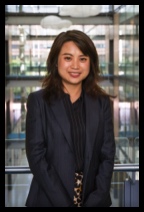
New York University
The Diao group focuses on solving long-standing problems in organic synthesis and sustainable energy research through transition metal catalysis. Currently we are working on Nickel-catalyzed transformations and fundamental mechanistic studies.
Our research program encompasses organic, inorganic, and organometallic chemistry. We seek to provide strategically creative solutions through the development of transition metal catalysts. The rational design of catalysts is based on a thorough understanding of reaction mechanism. Driven by synthetic applications, we also synthesize and characterize new organometallic complexes with the goal of elucidating fundamental principles of molecular bonding.
Learn more here:
https://as.nyu.edu/faculty/tianning-diao.html
https://www.diaogroup.org/
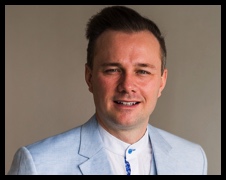
MIT
Throughout evolution, Nature has developed molecular machines to rapidly manufacture, tailor, and deliver large functional biopolymers such as proteins into specific cells. Inspired by these mechanisms of Nature, the Pentelute Lab aims to invent new chemistry for the efficient and selective modification of proteins, to ‘hijack’ these biological machines for efficient drug delivery into cells and to create new machines to rapidly and efficiently manufacture peptides and proteins.
A main goal of the Pentelute Lab is to invent new chemistry to modify Nature’s proteins to enhance their therapeutic properties for medicine. This goal has posed challenges because proteins contain 20 amino acids that present different reactive functional groups and have a flexible structure in solution. Chemical modifications of proteins need to be biocompatible, site-selective, quantitative, and carried out in water at reasonable temperatures to maintain structural integrity and function. The Pentelute Lab has developed a series of highly efficient and selective chemistries that can selectively modify the amino acids cysteine and lysine within unprotected peptides and proteins. These newly developed chemistries can be catalyzed by enzymes, promoted by short reactive motifs, such as the ‘pi-clamp’ and ‘DBCO-tag’ discovered by the group, or mediated by transition metals such as palladium. This extensive protein modification toolkit has enabled the production of potent bioconjugate molecules including peptide macrocycles that cross cell membranes to disrupt cancer or antibody-drug conjugates targeting several disease indications.
Learn more here:
https://chemistry.mit.edu/profile/bradley-l-pentelute/
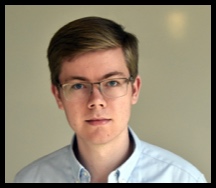
MIT
We work at the interface of chemistry and machine learning to develop models that understand how molecules behave, interact, and react and use that knowledge to engineer new ones. Much of our work focuses on improving computational strategies for small molecule drug discovery, molecular optimization, and synthesis planning. A long-term goal of our work is to enable autonomous molecular discovery, where hypotheses are proposed algorithmically and tested via experiments with minimal human intervention.
Learn more here
https://coley.mit.edu/
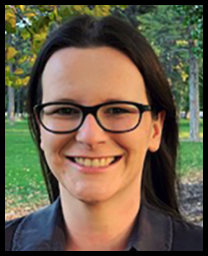
University of British Columbia
Our group uses both computation and experiment to understand and predict reaction outcomes in organic chemistry.
Data-driven Reaction Optimization
Chemical syntheses are generally devised by practitioners with significant experience and yet, are often executed in a trial-and-error fashion. In such scenarios, the practitioner will often evaluate a number of variables (catalyst, substrates, reagents, solvents, etc.) related to the target transformation, often one at a time, however, such a process is iterative and resource intensive. Importantly, it is not scientifically rewarding, as the primary reasons for reaction performance are not frequently revealed, hindering hypothesis-driven idea development and applications of a reaction to more complex substrates. Thus, the overarching objective of our program is to apply data-driven workflows incorporating physical organic principles directly within the reaction development and discovery process. Our approach to this is focused on three key aims:
(A) Machine learning applications to reaction development
(B) Discovery of new and efficient catalyst systems
(C) Automating reaction condition selection
Learn more here
https://www.chem.ubc.ca/jolene-reid
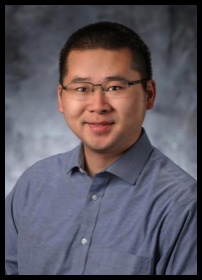
UC Santa Barbara
The Yang laboratory devises novel biocatalytic and protein engineering strategies to tackle challenging problems in synthetic organic chemistry.
In the first area, using directed evolution, we are leveraging enzymatic platforms to impose precise regio- and stereocontrol over challenging catalytic reactions. Using an interdisciplinary approach combining organic chemistry, organometallic chemistry, enzymology, and protein engineering, we expand the catalytic repertoire of enzymatic machineries well beyond nature’s biochemical landscape.
In the second area, we are developing concise chemoenzymatic syntheses of stereochemically complex natural products. Combining the power of organic synthesis and enzyme catalysis, we will simplify the assembly of biologically active natural products and their analogs and evaluate their antibiotic and anticancer activities.
In the third area, we are developing machine learning (ML)-guided directed evolution to accelerate the discovery and optimization of enzymatic functions that are not previously encountered in biology.
Learn more here
https://www.chem.ucsb.edu/people/yang-yang

